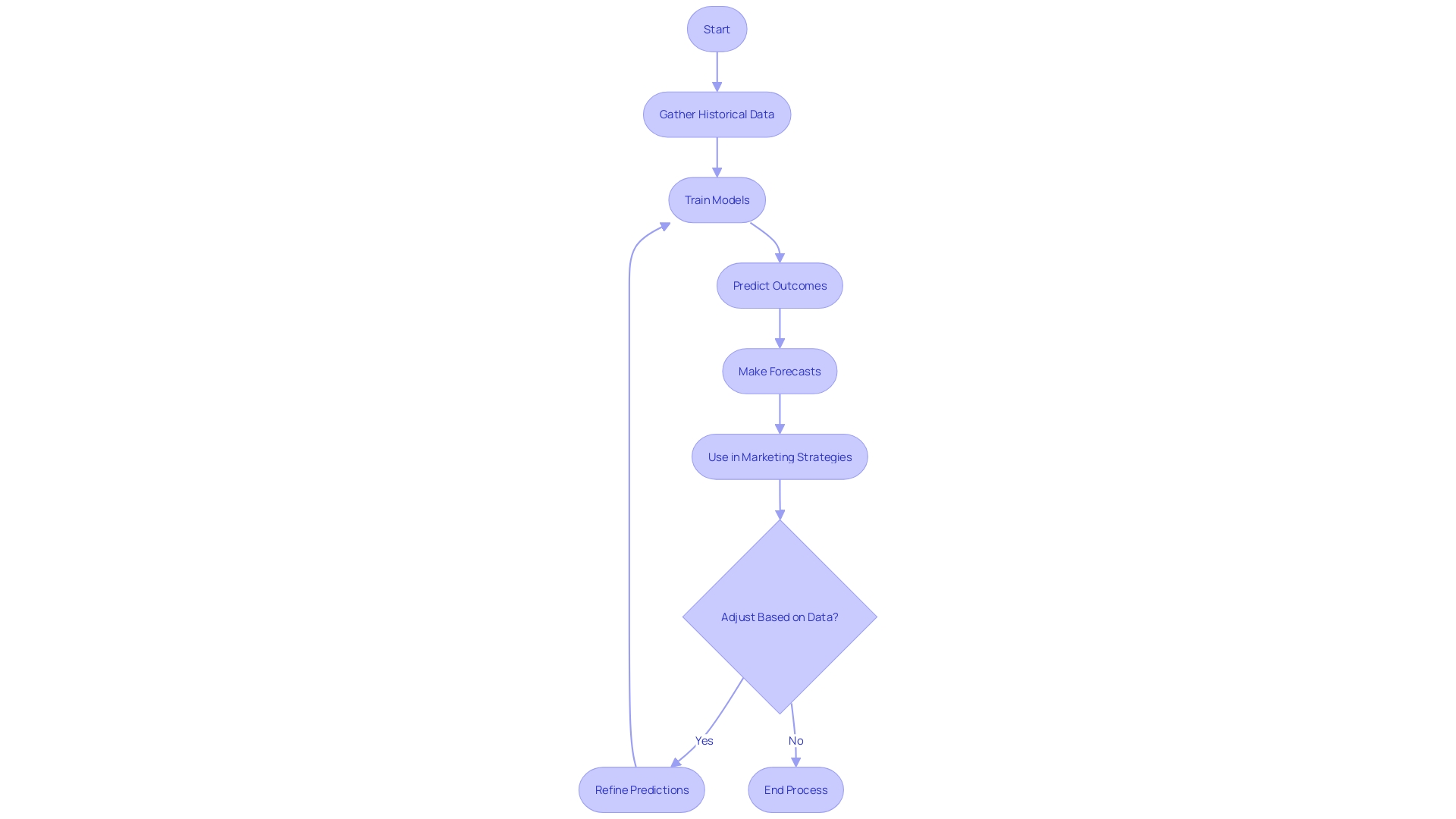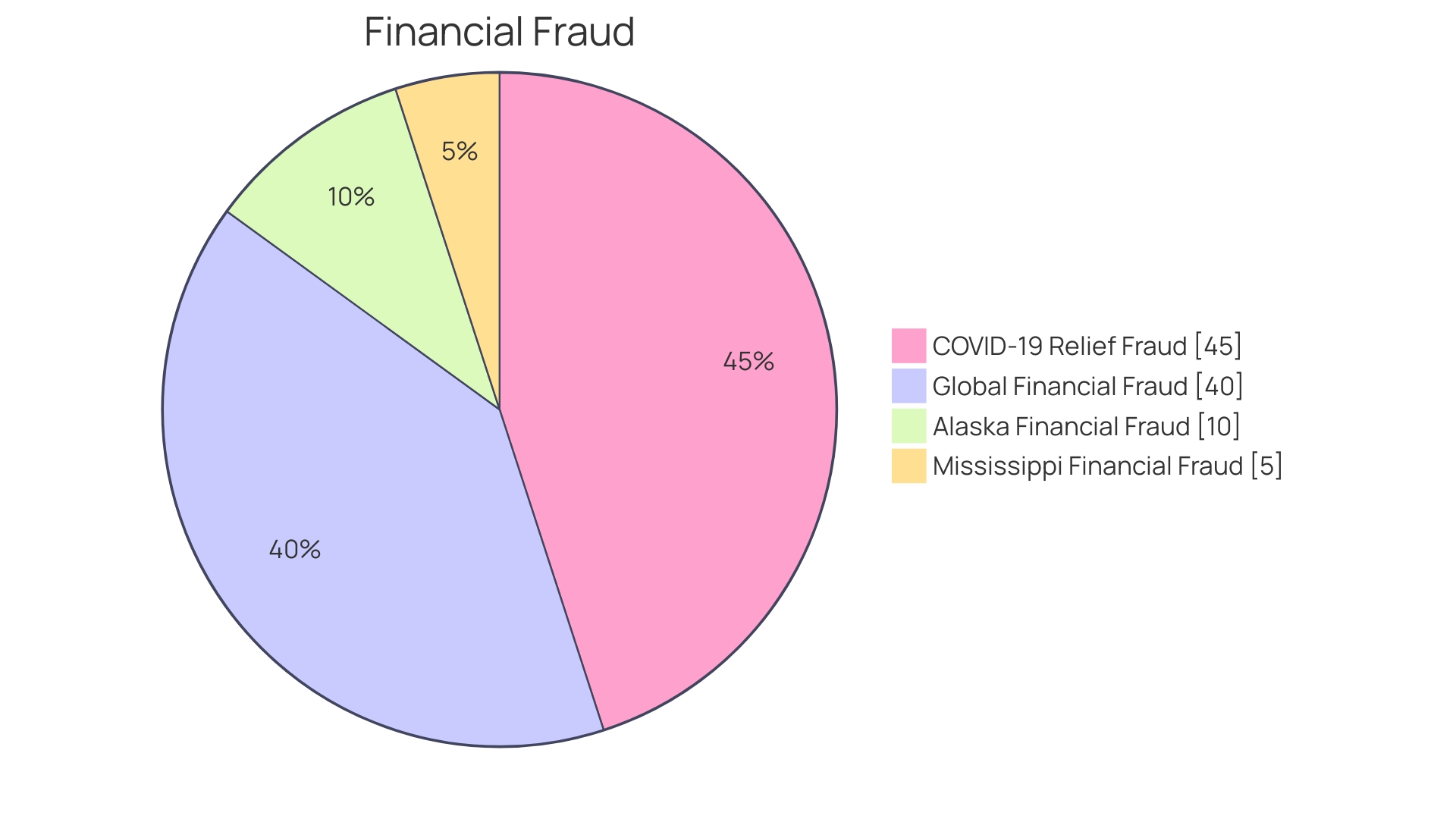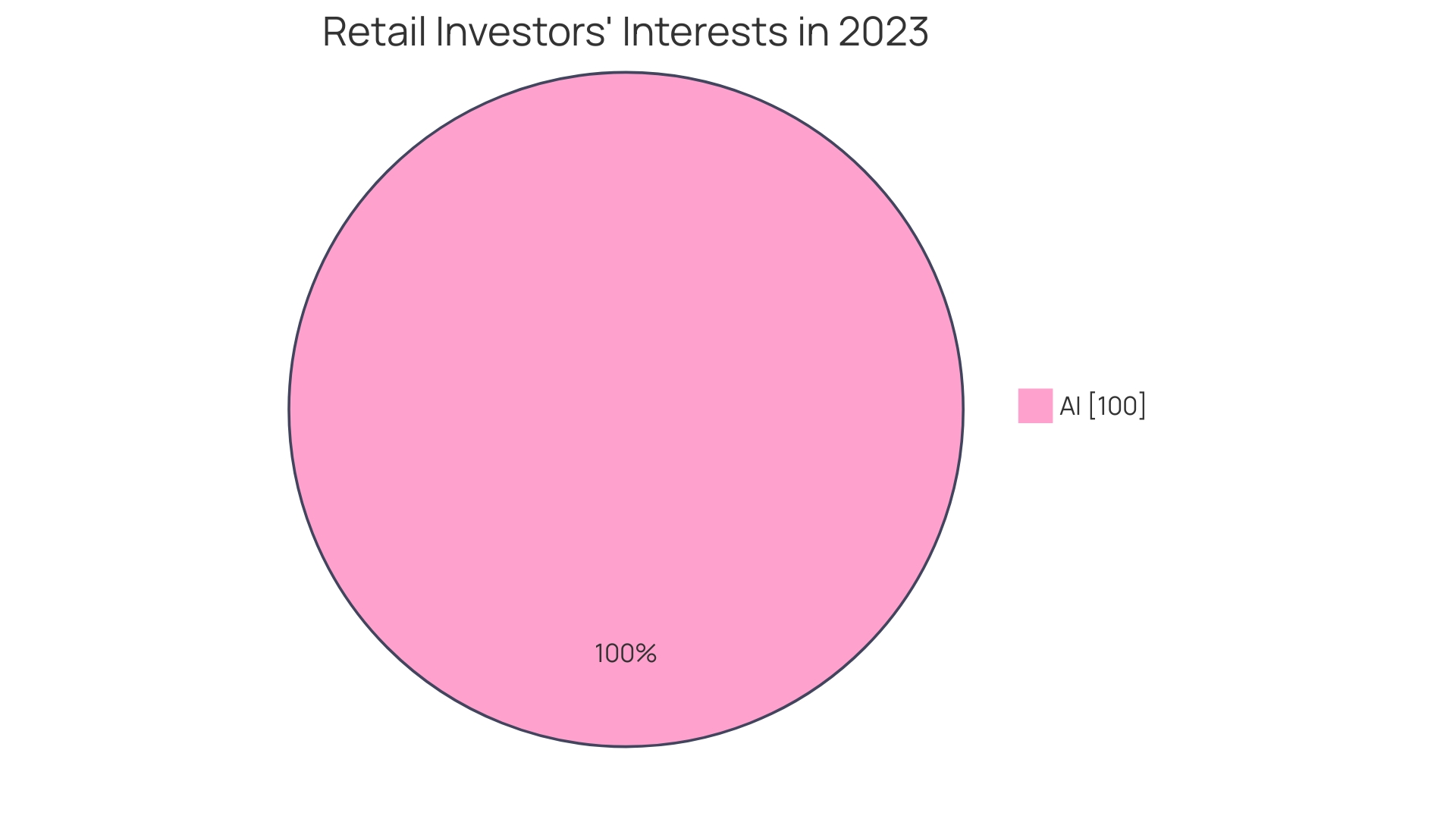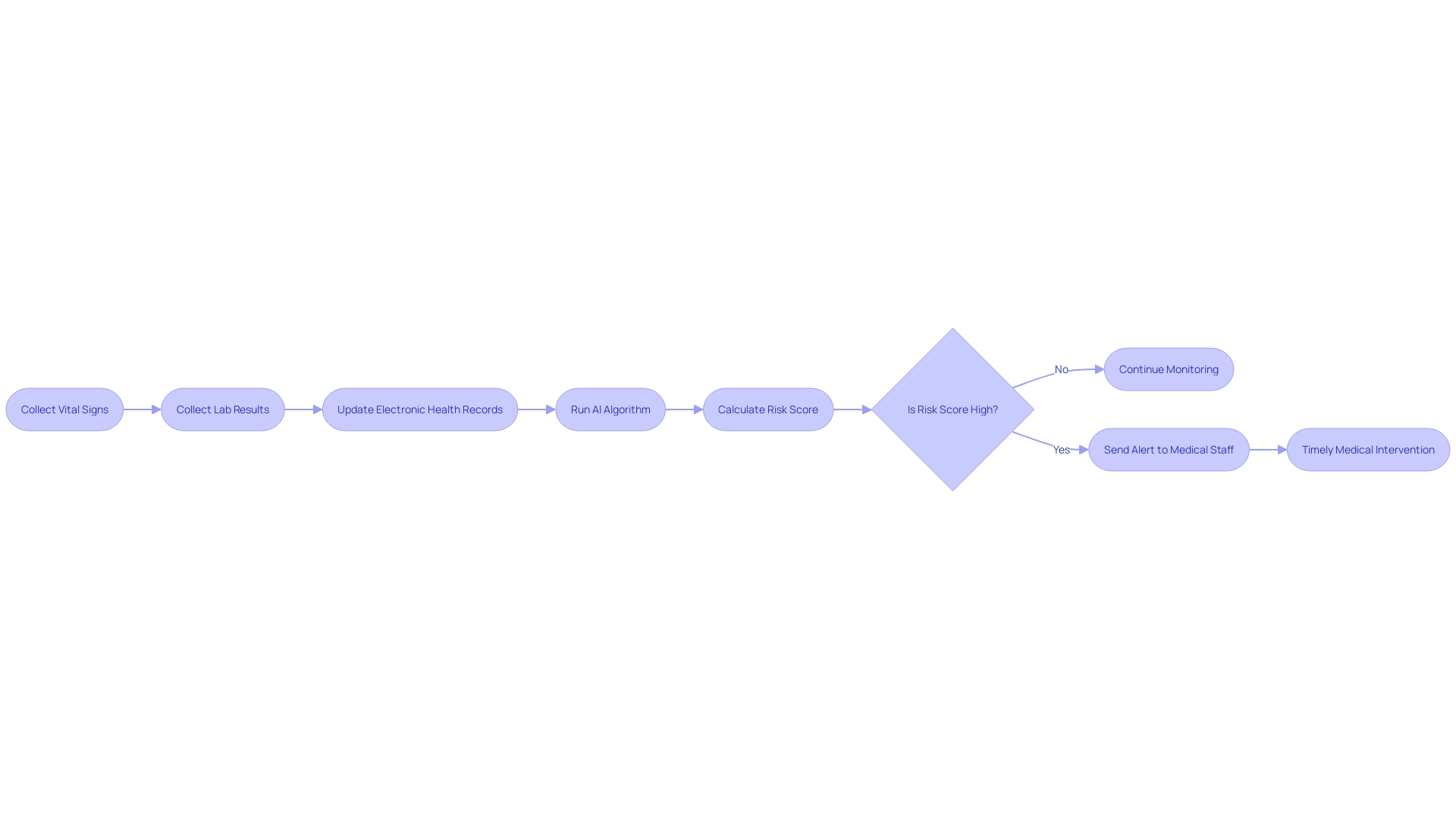Introduction
Machine learning techniques have revolutionized various industries, providing businesses with the ability to make accurate predictions and informed decisions. From enhancing predictive analytics to automating customer service, personalizing marketing campaigns, streamlining supply chain management, improving fraud detection and security, optimizing business processes, and transforming healthcare and financial services, machine learning is reshaping the way we operate. This article explores the wide-reaching applications of machine learning and AI, highlighting its potential to drive innovation, improve efficiency, and deliver data-driven insights.
As the demand for AI continues to grow, businesses across industries are recognizing the strategic imperative of embracing these technologies for a competitive edge in the digital era.
Enhancing Predictive Analytics
By harnessing historical data and current trends, machine learning techniques equip businesses with the ability to craft accurate forecasts that inform future strategies. The convergence of statistical algorithms with machine learning not only unravels patterns nestled within vast data sets but also refines predictive models with incoming data, thus elevating the accuracy of future trend and outcome predictions. This advanced approach to analytics is particularly useful in marketing, guiding decision-makers to preempt customer behaviors, adjust to market shifts, and exploit emerging opportunities.
In essence, the iterative nature of machine learning algorithms ensures each cycle of analysis sharpens the accuracy of its predictions, proving indispensable for businesses aiming to maintain a competitive edge and proactively respond to evolving scenarios.

Automating Customer Service with Chatbots
Leveraging machine learning, chatbots have revolutionized customer service by providing personalized interactions and streamlined support. They have the ability to parse customer questions, deliver spot-on product suggestions, and even handle entire transactions autonomously. This not only enriches customer experience but also allows live agents to channel their efforts toward tackling complex challenges.
At the forefront of this transformation is artificial intelligence, especially generative AI like ChatGPT, which has brought newfound sophistication to chatbots. Take for example Holiday Extras, Europe's leading travel extras provider, grappling with the sheer volume of international clients. They've implemented automated support that responds instantly to queries in multiple languages, addressing the scale issue head-on.
Privacy and compliance remain pivotal, particularly with the ascent of generative AI. Despite concerns, it is clear that proprietary data remains secure and under the owner's control. Generative AI transcends traditional boundaries, capable of not only understanding queries based on context but offering responses that align with branding and legal guidelines.
With statistics showing that up to 78% of customers withdraw from transactions following poor service experiences, Ai's ability to automate as much as 70% of customer requests becomes significantly impactful. Retaining customer-centricity is crucial; a personalized, empathy-driven approach is what sets apart successful implementation from those that receive a tepid response.
Indeed, the customer service landscape is changing, driven by AI capabilities. As we move forward, it is the quality, relevance, and secure integration of these solutions that will define their success and acceptance among consumers and industries alike.
Personalizing Marketing Campaigns
Harnessing the power of machine learning is transforming the way businesses conduct marketing. By diligently analyzing extensive customer data — including preferences, purchasing habits, and engagement metrics — machine learning algorithms are adept at uncovering deep insights into each customer's individual profile. This intelligence allows companies to curate marketing efforts that are not only highly personalized but are likely to resonate more effectively with each audience member.
Such precision in targeting is not just about increasing relevance; it's about forming a unique connection with consumers, elevating their experience to new heights, which, in turn, nurtures loyalty and boosts conversion rates.
Take the example of Netflix, a platform that has elevated the personalization of entertainment to an art form. It meticulously tracks viewers' interactions, down to the shows they watch and their viewing durations. With this data, Netflix employs machine learning to discern users' tastes, tailoring recommendations so superbly that it feels like a bespoke service.
Emulating this model, businesses can optimize their strategies to deliver similarly compelling, individualized content.
Such customization goes beyond media streaming. Since the inception of online advertising, advancements like cookies have been pivotal in enhancing the ability of businesses to offer content that speaks to the individual. Today, the use of these tools, alongside cutting-edge algorithms, means companies can cater to the nuanced needs of their customers more effectively than ever.
Imagine delivering a shopping experience so personal it's like walking into a store where everything is arranged just for you based on your preferences and purchasing history.
It's this kind of personalized touch that leads to increased customer satisfaction. When customers feel understood and valued, they're more likely to return. And in a digital landscape that's constantly evolving, it's the innovative use of AI and machine learning that keeps businesses at the forefront, turning the vast ocean of data into actionable, customer-centric strategies.
Streamlining Supply Chain Management
As we delve into the intersection of artificial intelligence (AI) and machine learning (ML) with supply chain management, it becomes evident that these technologies offer transformative potential. To unravel the complexity of modern supply chains, AI and ML can intelligently forecast demand, fine-tune inventory levels, and refine logistics operations. Utilizing vast quantities of both historical and real-time data, these technologies provide businesses with strategic insights to enhance their supply chain processes comprehensively.
Optimization begins with predictive analytics that anticipates trends and demand fluctuations, thereby guarding against both overstocking and stockouts. This not only ensures product availability meeting customer expectation but also mitigates the costs associated with excess inventory. Prescriptive analytics takes this a step further by recommending specific actions, such as dynamic pricing strategies or inventory reallocation, to align operations with predicted market conditions.
Revolutionizing supply chain logistics is no longer a speculative matter. For instance, the rising implementation of autonomous vehicles and advanced simulation software depicts a reality where logistical efficiency is being redefined. These tools enable managers to explore 'what-if' scenarios and make informed decisions that amplify resilience and sustainability across the supply chain.
Taking a practical perspective, the case of Axfood, Sweden's second-largest food retailer, exemplifies AI and ML's role in driving digital transformation. By embracing MLOps best practices and platforms like Amazon SageMaker, Axfood has successfully integrated an increasing number of sophisticated ML models into their operations. Such technological integration is indicative of a broader trend where companies leverage AI/ML not merely for incremental improvements but as catalysts for reinventing their supply chain paradigms.
In the pharmaceutical sector, the application of AI assists in navigating supply chain complexities and addressing unpredictable challenges. This becomes paramount when managing intricate networks of stakeholders and regulatory requirements, which, if not adeptly handled, can lead to shortages and disruptions.
Ultimately, embracing AI/ML is more than an upgrade; it's a strategic imperative. By recognizing this, supply chain executives can prioritize their investments, target high-value use cases, and achieve considerable gains in cost savings and operational performance. As AI/ML technologies continue to mature, these benefits will only grow, marking an inflection point for supply chain optimization.
Improving Fraud Detection and Security
In a digital landscape where fraud schemes are becoming increasingly elaborate and cyber attackers more sophisticated, businesses face the daunting task of safeguarding their financial operations, especially in online environments. Credit card fraud, a prevalent issue that costs the economy billions annually, demonstrates that traditional protection methods lag behind in identifying and preventing these intricate ploys for deception.
Machine learning (ML), a powerful branch of artificial intelligence (AI), is emerging as a game-changer in combating financial fraud. Its capability lies in analyzing vast datasets with precision, quickly identifying anomalies and abnormal patterns that may indicate fraudulent activity. These intelligent models are continuously learning from new data, adapting their detection strategies to outpace the cunning tactics of modern fraudsters.
With organizations suffering substantial revenue losses—up to 10% annually—due to cyber threats, and global economies grappling with an average of 6.05 percent of GDP lost to fraud over two decades, the urgency for robust fraud management systems is palpable. Machine learning tools, as emphasized in studies such as Bolton & Hand's 'Statistical Fraud Detection: A Review,' provide valuable support in this fight, enhancing traditional detection methods which often fall short in accuracy, speed, and adaptability.
Empowered by ML, companies can now tackle issues like credit card fraud with unprecedented efficiency. These technologies meticulously scrutinize transactional data, flag inconsistencies, and alert businesses to potential fraudulent behavior. This proactive stance not only wards off immediate threats but also fortifies long-term financial security for businesses and their customers alike.
The evolution of financial fraud detection is also exemplified by innovative platforms like Deepcheck, which leverage ML models for their validation and testing processes. By employing meticulously curated datasets, such as those available from Kaggle, these systems provide a tangible solution to the complex problem of online payment fraud.
Notably, AI is not limited to protecting businesses alone; it extends its benefits to the public sector. For example, during the COVID-19 pandemic, fraudulent claims in U.S. unemployment insurance programs were estimated to fall between $100 billion and $135 billion. AI and ML can help mitigate such risks, offering governments and organizations an effective mix of technology and innovation.
In conclusion, as AI and ML redefine the best practices in fraud detection and prevention, they represent a pivotal investment for any business that values the integrity and security of its financial transactions. Their advanced capabilities provide a safeguard against the ever-evolving threat landscape, ensuring a more secure financial future for businesses and consumers alike.

Optimizing Business Processes with AI
Leveraging AI and machine learning transcends beyond just forecasts and inventory optimizations; it redefines operational excellence across vast businesses with complex processes. Trailblazing companies like Europe's Holiday Extras with their multi-lingual marketing requirements and South Korea's century-old Doosan Group, venturing into digital transformation to mold themselves into Intelligent Enterprises, illustrate Ai's spectrum of applications. AI bridges gaps between scale, diversity, and technical acumen among employees, enabling less technical staff to contribute meaningfully without the need to delve into deep analytics.
For instance, the personalized customer experiences and metrics-driven strategies employed by the Customer Support and Design departments at Holiday Extras reap dividends from AI and machine learning, catering to an international clientele in their native languages. Meanwhile, Doosan Group's steel mills employed AI to handle an uptick in product diversity, streamlining the production of numerous steel types to meet a growing, diverse customer base.
Manufacturers in the USA are keen on reaping Ai's benefits, with the Manufacturers Alliance Foundation noting a sweeping adoption rate among them—93% introduced new AI initiatives in the past year. They anchor their expectations on AI to elevate productivity, throughput, and quality. Verizon Communications, too, pivots to AI for handling complex queries from its extensive customer base, spotlighting AI's efficacy in honing customer service.
With AI, businesses can narrow focus on manual, repetitive, and costly processes like identity verification and order inquiries, opening avenues for remarkable advancements in efficiency and ROI. Industry insiders predict AI's role in creating new jobs and bestowing employees with 'superpowers' that amplify productivity.
The underlying message across case studies, the latest news, expert quotes, and statistics is clear: The fusion of AI and machine learning in business isn't just a pursuit of innovation—it's becoming the cornerstone of a strategic vision for future-ready enterprises, driving them to new heights of competitiveness in the digital era.
Enhancing Decision-Making with Data-Driven Insights
Merging the realms of data science with applied business strategies, machine learning stands as a beacon of innovation, empowering companies to fortify their decision-making with data-derived insights. At the forefront of this revolution, machine learning algorithms tirelessly sift through deep oceans of both structured and unstructured data. They are not merely number-crunchers; these algorithms decipher complex patterns, unveil trends, and unearth nuggets of information that, when leveraged correctly, can catapult a business ahead of the competition.
Take, for example, the venerable Doosan Enerbility, with its roots firmly planted as South Korea's oldest running company and a heavyweight in heavy equipment manufacturing. Here, the pulse of machine learning beats strong within the Head of Digital; it is the lifeblood that propels the company towards becoming an Intelligent Enterprise. Within its steel mills, a dizzying array of over 150 raw materials is melded into a diversity of steel types, driven by a customer base that is both multiplying and diversifying.
In the thick of this complexity, machine learning emerges as the guiding star, interpreting a vast spectrum of variables to optimize production, meet unique customer needs, and drive strategic insights.
The fashion industry, traditionally governed by intuition and creativity, now also reaps the benefits of AI. Thought leaders, like Pineville, recognize the need to address the prevalent overstock issues where nearly a quarter of products remain unsold. AI-driven tools dissect and understand global trends, breathing fresh life into an emotions-driven sector, and equipping decision-makers with a broader perspective of consumer segmentation.
Such tools look beyond the 'Parisian' ravines, offering foresight into a wider array of subcultures, age groups, and regional preferences, thereby shaping design and stock decisions for each market uniquely.
Indeed, pinpoint analysis provided by ML is driving a paradigm shift where 91.5% of companies maintain ongoing investments in AI and ML, acknowledging that economic prosperity is tied to the predictive power these systems hold. Moreover, 80% of enterprises report an increase in revenue upon integration of ML, according to McKinsey. These figures underscore the profound impact of machine learning; it is a catalyst, not just for economic growth, but for continuous innovation in marketing, customer service, and even software engineering.
As generative AI breeds new solutions, so too does machine learning refine its analytical prowess with each iteration, offering increasingly accurate insights vital for tailoring customer experiences and fueling business growth.

Revolutionizing Healthcare with AI Applications
Artificial intelligence (AI) and machine learning are playing a pivotal role in revolutionizing healthcare systems. By employing advanced algorithms and rich data sets, AI is not just improving disease diagnosis but also predicting health deteriorations in patients with remarkable accuracy. Consider a sophisticated AI algorithm that monitors patients in a hospital.
It evaluates critical data, such as vital signs and lab results, from electronic health records nearly in real-time. Roughly every fifteen minutes, it calculates a risk score indicating the probability of a patient's health decline. When a potential deterioration is detected, the system alerts the medical staff, prompting timely intervention and fostering crucial conversations.
This not only bolsters a healthcare system's resilience during high-stakes scenarios but also ensures that clinical expertise is directed where it is most needed, adjudicating the expanding workload of healthcare professionals.
In fact, the urgency for such innovations is underscored by the dire staffing crisis in healthcare—the dearth of over 100,000 clinicians needed to meet the anticipated demand in the upcoming years. As medical complexity burgeons owing to new diagnostic methods, continuous monitoring technologies, and advanced therapeutics, clinicians must decipher increasingly complex data sets in real-time. AI is the toolkit that enables this data synthesis, empowering clinicians to make informed decisions and manage populations of patients with intricate, chronic conditions more effectively.
Furthermore, the landscape of AI in medical applications is infused with promising development trends. Medical image analysis, for instance, is greatly augmented by AI, aiding in the early and accurate detection of diseases like cancer through more refined scrutiny of X-rays and scans. Beyond diagnostics, AI is accelerating drug discovery, predicting drug efficacy with unprecedented speed, steering us closer to the realization of personalized medicine tailored to individual genetic profiles.
This transformative impact, while pronounced, is not universal across all global regions. In Asia Pacific, a stronghold of economic growth and home to a vast swath of the world's population, the uptake of AI in healthcare is poised to make substantial strides. The region grapples with a range of health outcomes, with countries like Japan demonstrating considerable healthcare spending.
As life expectancy rises and the demand for enhanced healthcare grows, AI stands as a beacon for improving healthcare accessibility and outcomes. However, the effectiveness of AI systems is predicated on the quality of the underlying data. Just like a student learning from a textbook, AI requires accurate, unbiased information.
The risk of bias is a significant challenge, particularly when data is fragmented across hospitals, which can lead to unfair treatment, especially for minority groups.
To surmise, artificial intelligence is not just a technology of the future but an instrumental piece of today's healthcare puzzle—ushering in a new era of diagnosis, treatment personalization, and systemic resilience.

Transforming Financial Services with Machine Learning
Advancements in artificial intelligence (AI) have ushered in a new era in the financial services sector, spearheaded by machine learning (ML) technologies that process vast amounts of data to transform operations and customer experiences. Ai's significance in banking is multifaceted—centering on data-driven decision-making, AI enhances credit scoring accuracy and fuels dynamic market analysis, invoking a smarter approach to algorithmic trading. Through the utilization of both traditional statistical models and advanced artificial neural networks, AI algorithms are deeply integrated into the financial landscape, exercising the brain-like capacity to learn non-linear data patterns and adapt insights to new, unforeseen scenarios.
By harnessing technical analysis, a method relying on market history, such as price changes and trading volumes, financial institutions can anticipate market shifts with improved precision. This approach dismisses external factors like socio-political events, focusing solely on market-generated data and the presumption that price movements abide by discernible trends. Ai's prominence is underscored in the realm of fraud detection, where it meticulously scans transactions, flagging anomalies that signify potential fraud, thus safeguarding assets and maintaining customer trust.
The integration of AI in banking is backed by a proactive regulatory environment that balances innovation with consumer protection, echoing the sentiments from the industry that underscore AI as transformative. Ai's capability to extract, process, and analyze data from an amalgamation of structured and unstructured sources is crucial to meet the demands of expedited document processing and informed decision-making. For instance, intelligent document processing (IDP) solutions leverage large language models to synthesize information from diverse documents, bypassing manual classification while ensuring precise data extraction.
What solidifies AI's role in shaping the future of financial services is not just its ability to streamline operations but its continuous evolution and learning aptitude. This adaptability positions AI as a pivotal component in risk management, compliance, and customer-centric financial products, poised to advance how firms engage with customers and strategize investments. As computational resources become increasingly affordable, the complexity and efficacy of AI systems like foundation models are set to soar further, undoubtedly propelling the sector to unprecedented levels of innovation and efficiency.
Future Trends and Innovations in Machine Learning
Machine learning is revolutionizing the ability to forecast and respond to complex challenges. Carrier harnesses cutting-edge ML to advance the reliability of climate control systems, pioneering a shift from merely diagnosing to proactively predicting equipment issues. This technological leap is also transforming broader fields, evident in Ai's role in enhancing global flood predictions.
Innovative models now deliver lifesaving early warnings, illustrating the practical, far-reaching impact of ML advancements.
The rapid expansion of generative AI, popularized through applications like Google's Bard and PaLM 2, underscore a remarkable trend: the democratization of AI. These tools empower diverse audiences to generate creative, multilingual content with ease, heralding a new era of inclusive technology.
AI's impact is not only defined by advanced tools but also by its economic influence. As AI streamlines repetitive tasks, it frees human intellect for higher-value work, contributing to economic prosperity. Meanwhile, the ML market is witnessing significant growth, expected to reach $79.29 billion by 2024 and growing at a CAGR of 36.08% until 2030, with the United States leading globally.
This vibrancy in ML is not confined to tech giants; it permeates sectors from healthcare, with algorithms assisting in diagnostics and surgeries, to finance, enhancing market efficiency. The trends for 2024 emphasize an environment rich with accessible data science tools, transforming complex tasks into streamlined processes across industries.
Conclusion
In conclusion, machine learning and AI have revolutionized industries, driving innovation, improving efficiency, and delivering data-driven insights. They enhance predictive analytics, automate customer service, and personalize marketing campaigns. Machine learning optimizes supply chain management and strengthens fraud detection and security.
AI and machine learning optimize business processes, enhance decision-making, and transform healthcare systems. They play a pivotal role in the financial services sector, improving credit scoring accuracy, market analysis, and fraud detection.
Looking to the future, machine learning trends focus on the democratization of AI, economic influence, and the expansion of accessible data science tools. ML advancements impact diverse fields and contribute to economic prosperity.
In summary, businesses must embrace machine learning and AI to stay competitive and thrive in the digital era. These technologies unlock transformational opportunities, improve efficiency, and drive innovation across industries. They are reshaping the way we operate and provide a strategic advantage in the fast-paced, data-driven world.
By harnessing the power of machine learning and AI, businesses can make accurate predictions, automate processes, personalize customer experiences, and optimize operations. The impact of these technologies is profound, and their continued development will shape the future of various industries. Embracing machine learning and AI is not just a choice but a strategic imperative for businesses to stay ahead in the digital age.
Unlock the power of machine learning and AI for your business today!





